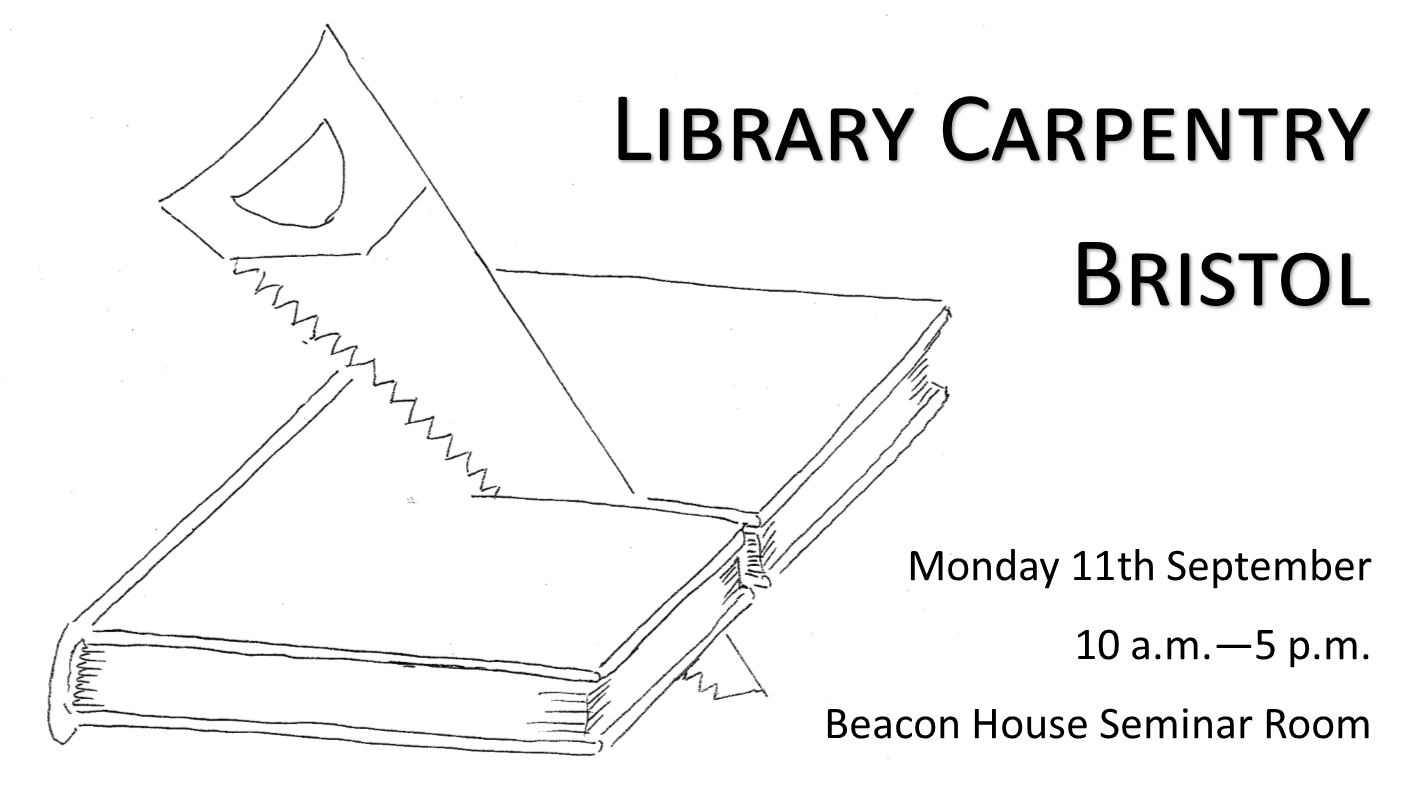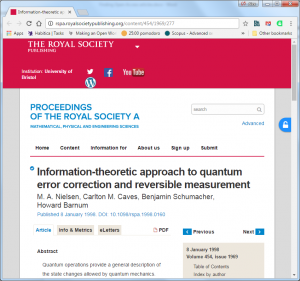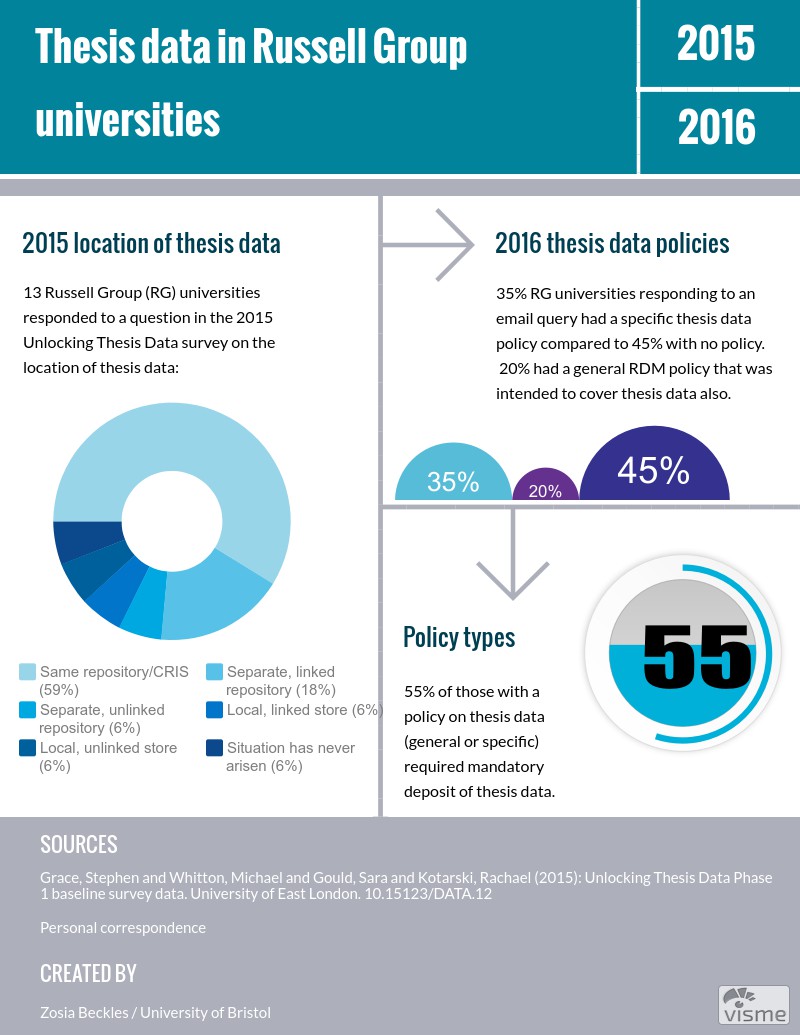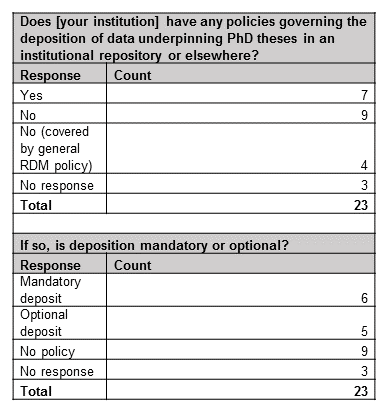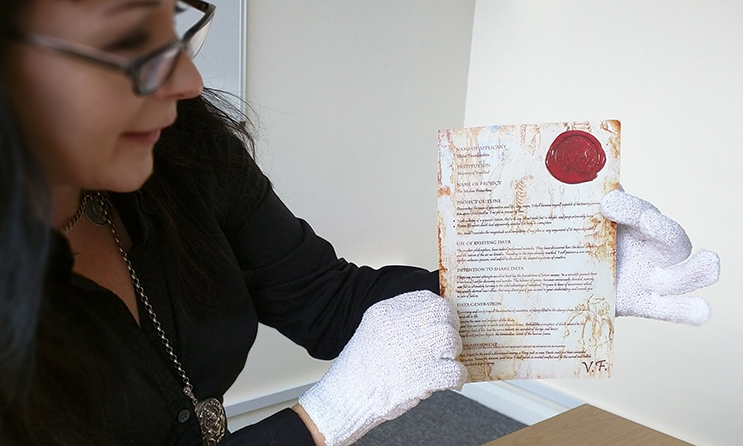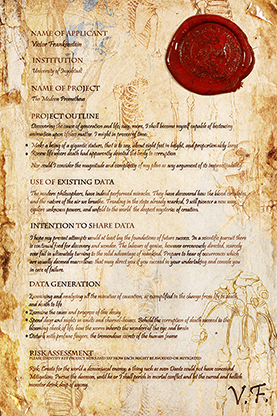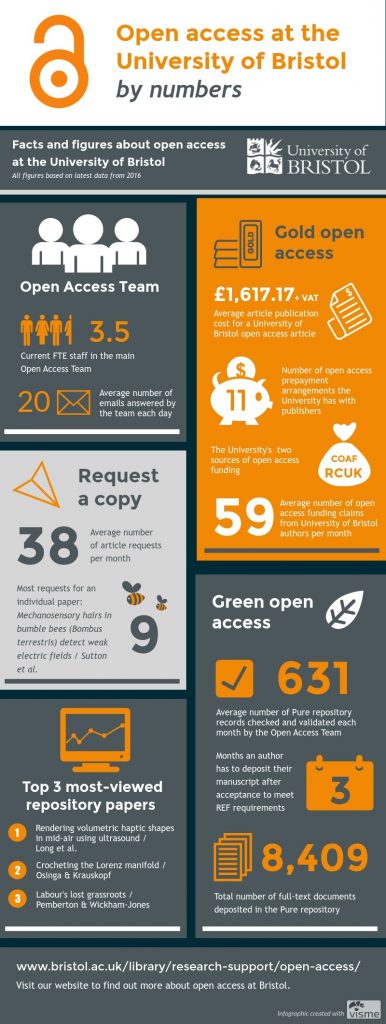
Today’s post describes open access from an administrator’s perspective. Claire Evans is Senior Executive Assistant in the School of Biological Sciences at the University of Bristol.
I’ve been working as a Senior Executive Assistant at UOB for several years – most recently in the School of Biological Sciences; previously in Social and Community Medicine (the largest School in the University) where I worked closely with the Head of School and School Manager.
As well as Open Access, I am responsible for managing the admin team, providing project support, staff recruitment and financial management and I am PA to the Head of School. Open Access has become a central part of my remit since the arrival of a government mandate to make all publicly funded research accessible to everyone.
We were faced with the challenge of developing standard procedures for everyone to follow – based on the HEFCE workflow process. It is basically a simple 3-step process: when a paper is accepted for publication the author needs to create a record in our research repository, Pure, with the basic details (authors, title, journal, etc) and add their accepted manuscript to the record, then forward their acceptance email with the Pure ID to the library open access team who will do the rest.
Despite this simplicity, there has been a tremendous amount of resistance, particularly amongst some academics who felt it was ‘time-consuming’ and ‘complicated’ – whereas the admin staff just get on with it! I think there’s also a certain amount of fear – “it’s a big scary thing” – like it was worse than it actually was. People didn’t understand just how simple it was.
We’ve tried all sorts of ways of getting the word out to researchers that Open Access is not that difficult! There is plenty of support available – from us, from the Library and from the repository team – and training sessions have been provided in a number of locations at different times.
At the beginning of 2016, because busy academics were increasingly relying on their friendly local administrative staff to help them with the Open Access tasks, we decided to commission a training course especially for support staff in the School. Many were already adding publications to Pure on behalf of academics – or whole research groups – while others were destined to do so in the near future! It was a new task to add to our already complex workload and at first seemed quite daunting.
The course was run by staff from the library and repository team and was designed to give us a good grounding in the principles of gold and green OA, and specifically in the procedures required to make the School’s publications compliant with the HEFCE policy. That way we could provide practical support and advice to busy researchers.
Some administrators felt a bit apprehensive about the responsibility this implied – would they do something to jeopardise the School’s chances in the next REF by inadvertently making a publication non-eligible for submission? They felt it needed to be clearly stated that the responsibility should lie firmly with the academics – both for notifying the relevant person that their article had been accepted for publication, and ensuring that the manuscript was added to Pure within the 3-month timeframe. We encouraged academics to keep an eye on the process – and their publications – to make sure they were happy with the details.
This has been endorsed by the senior management in the School, particularly the Head of School and Faculty and School Research Directors. It is in the interests of individuals to make sure their publications are up-to-date and accurate in Pure, and that they’ve followed the correct procedures. If not, their REF submission – and ultimately the School’s performance and funding are all at stake – not to mention the potential impact on their individual careers!
When Bristol published its Institutional Mandate for Open Access (based on the HEFCE policy) the library started to record each School’s compliance with open access on a monthly basis by checking a list of published articles against the publications in Pure – to see how well we were doing. It was early days, and it’s a very big school, but we were dismayed to find that our compliance rate was only 19% – worryingly low!
The Faculty Research Director is phenomenally busy but took it all in her stride and managed to galvanise and motivate people to ‘act on acceptance’. The last compliance report showed a distinct improvement – up to nearly 70%. There are about 18 ‘repeat offenders’ who are receiving regular reminders.
The more junior researchers – sometimes more IT-savvy and used to learning new things – have been able to help others to get to grips with the systems and start integrating open access into their workflows. Those academics ‘in the middle’ of their careers were in the worst situation – not so ‘clued-up’ with the systems – and without secretarial or admin support to take on the tasks on their behalf.
One of the best bits of Open Access has been the support and help we’ve received from the library team – and their liaison and communication has been all-important in spreading awareness and emphasising the importance of the HEFCE policy.
We’ve been working hard to publicise the Open Access mandate through a wide variety of routes – the staff intranet – linking to the library Open Access and Pure web pages, items in regular newsletters, emails to the all-School email group, posters and fliers on people’s desks and in their pigeonholes, short presentations at school meetings, research forums and training events.
It’s true that staff have a myriad of things to do, not least a full teaching schedule throughout the academic year and the increasingly complex requirements of research funders – ResearchFish, Impact Case Studies, Data Management to name just some of them.
Admin staff play a key role in supporting these activities, and the work we do in relation to Open Access publishing – advising on the policies and procedures, chasing up authors for their acceptance emails and manuscripts, uploading the correct version to Pure on their behalf and sending reminders to the non-compliant ones – even training staff in the simple 3-step process – are all vital.
In addition, senior management have clarified to staff aspects of the policy and the consequences of non-compliance – ie that key publications will not be eligible for REF submission, thus losing vital income for the School. Ultimately the lead University of Bristol author on the paper is responsible even if the lead or corresponding author is abroad. The original, accepted manuscript must be in Pure within 3 months of firm acceptance from the publisher.
Through our contacts with administrators in other Schools, we’ve found that the knowledge and expertise developed over the past 18 months has really helped speed up the progress of engagement with Open Access and also keep track of the Schools publications and ensure their compliance.
